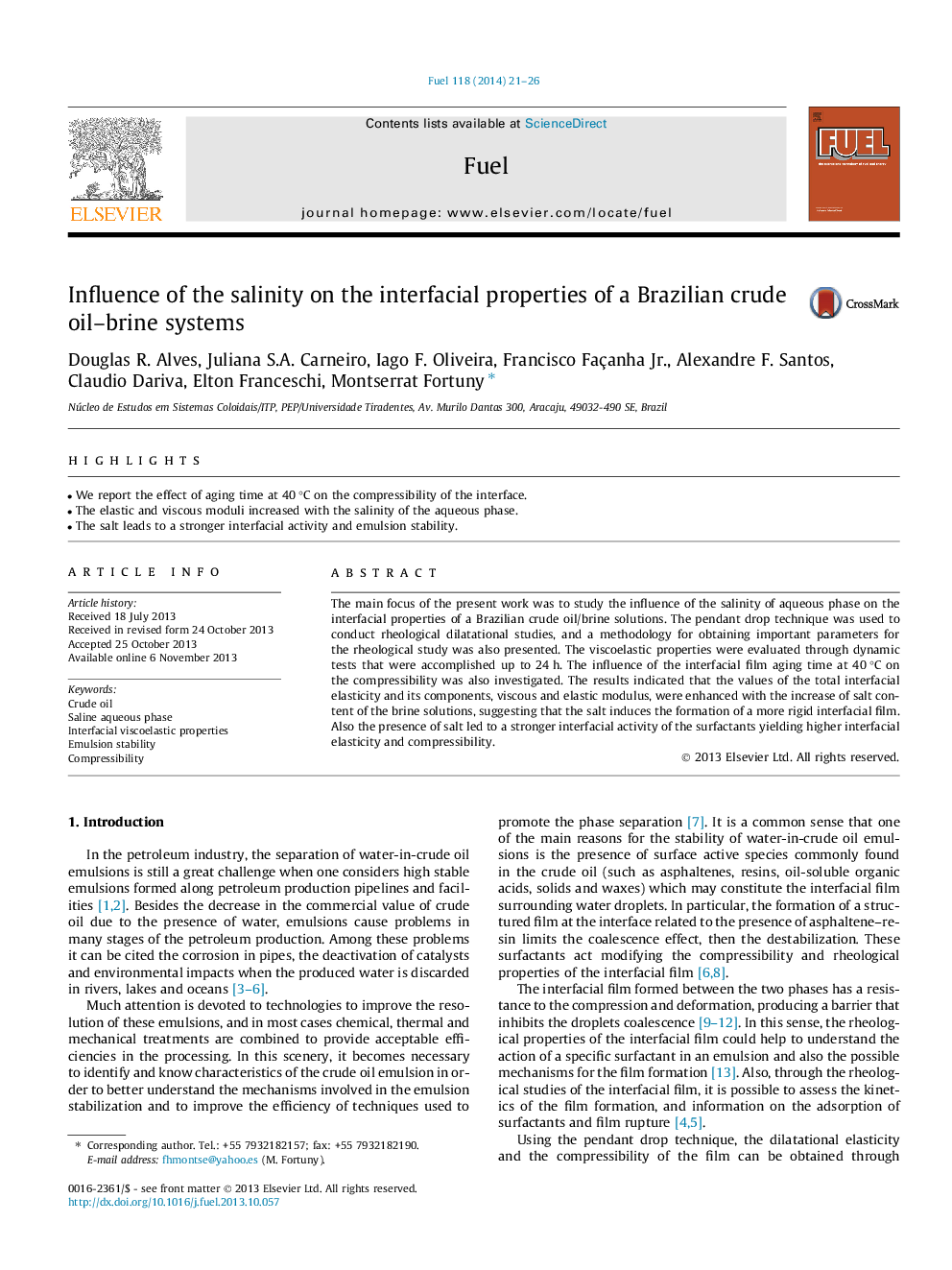| Article ID | Journal | Published Year | Pages | File Type |
|---|---|---|---|---|
| 6638329 | Fuel | 2014 | 6 Pages |
Abstract
The main focus of the present work was to study the influence of the salinity of aqueous phase on the interfacial properties of a Brazilian crude oil/brine solutions. The pendant drop technique was used to conduct rheological dilatational studies, and a methodology for obtaining important parameters for the rheological study was also presented. The viscoelastic properties were evaluated through dynamic tests that were accomplished up to 24 h. The influence of the interfacial film aging time at 40 °C on the compressibility was also investigated. The results indicated that the values of the total interfacial elasticity and its components, viscous and elastic modulus, were enhanced with the increase of salt content of the brine solutions, suggesting that the salt induces the formation of a more rigid interfacial film. Also the presence of salt led to a stronger interfacial activity of the surfactants yielding higher interfacial elasticity and compressibility.
Related Topics
Physical Sciences and Engineering
Chemical Engineering
Chemical Engineering (General)
Authors
Douglas R. Alves, Juliana S.A. Carneiro, Iago F. Oliveira, Francisco Jr., Alexandre F. Santos, Claudio Dariva, Elton Franceschi, Montserrat Fortuny,
